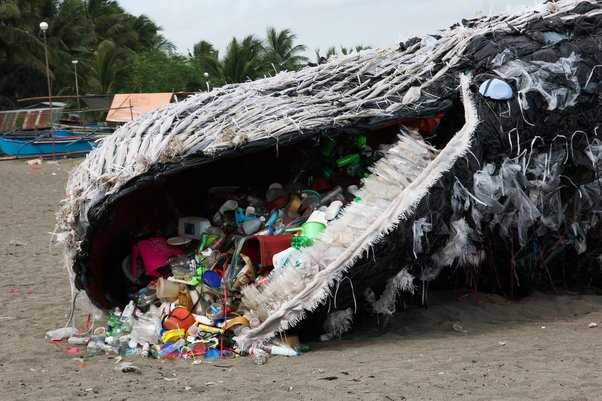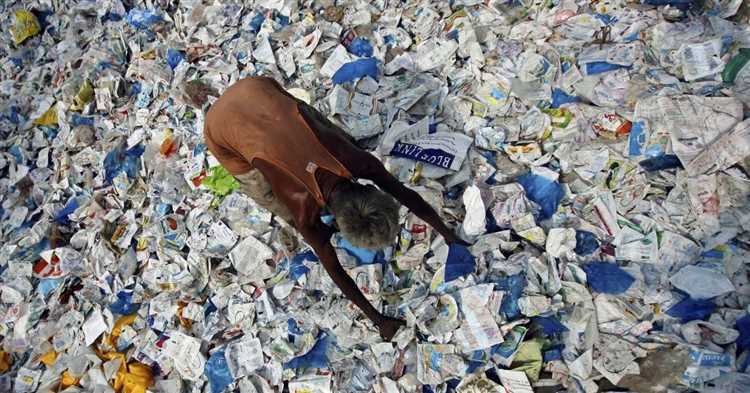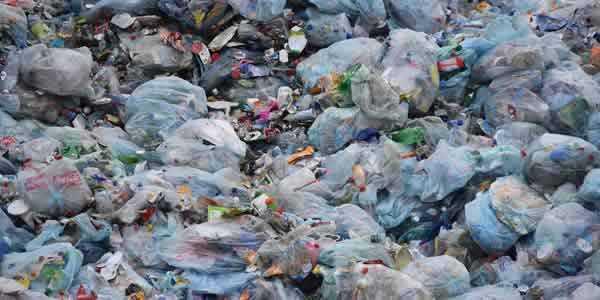
Plastic bags have become a ubiquitous presence in our daily lives. They are lightweight, convenient, and seemingly disposable. However, the environmental and societal consequences of their widespread use are staggering. From polluting our oceans to harming wildlife, plastic bags pose a significant threat to our fragile ecosystems. Therefore, it is essential to explore the benefits of banning plastic bags, not only for the environment but for society as a whole.
One of the most significant advantages of banning plastic bags is the positive impact it has on the environment. Plastic bags are notorious for their long decomposition period, often taking hundreds of years to break down. As a result, they accumulate in landfills and contribute to the growing issue of waste management. By banning plastic bags, we can reduce the amount of non-biodegradable waste generated, leading to cleaner land, air, and water.
Moreover, banning plastic bags can help protect our marine ecosystems. Every year, millions of plastic bags end up in the ocean, posing a severe threat to marine life. Sea turtles, whales, and other marine animals frequently mistake floating plastic bags for food, leading to poisoning, suffocation, and death. By eliminating plastic bags, we can minimize this threat and conserve the biodiversity of our oceans.
The benefits of banning plastic bags extend far beyond the environment. By encouraging the use of reusable bags, we can promote a more sustainable and responsible consumer culture. Reusable bags are often made from durable materials such as cotton or canvas, which can be used multiple times over extended periods. This shift towards reusable bags reduces the demand for disposable plastic bags, thereby decreasing the production of plastic and saving valuable resources.
Additionally, banning plastic bags can foster a sense of community and social responsibility. It encourages individuals to rethink their consumption habits and make conscious choices that benefit the environment. By engaging in sustainable practices like using reusable bags, we can create a collective impact and set an example for future generations. Banning plastic bags is a step towards building a greener and more environmentally conscious society.
In conclusion, the benefits of banning plastic bags are undeniable. By reducing waste, protecting our marine ecosystems, promoting sustainable consumption, and fostering a sense of community, banning plastic bags can have a profound impact on both the environment and society. It is crucial for governments, businesses, and individuals to work together in implementing this significant change and pave the way for a cleaner, healthier planet.
- Positive effects of prohibiting plastic bags on the environment and society
- Reduction in plastic pollution
- Preservation of wildlife habitats
- Impact on bird populations
- Conservation efforts
- Improvement of water and air quality
- Promotion of sustainable alternatives
- Reusable Bags
- Paper Bags
- Economic benefits for local communities
- Positive impact on public health
- Q&A
- What are the negative impacts of plastic bags on the environment?
- How can banning plastic bags benefit the environment?
- What are the potential economic benefits of banning plastic bags?
- Are there any challenges associated with banning plastic bags?
- How have countries that banned plastic bags benefited from the ban?
Positive effects of prohibiting plastic bags on the environment and society
1. Reduced plastic pollution: Banning plastic bags can significantly reduce the amount of plastic pollution in the environment. Plastic bags are non-biodegradable and can take hundreds of years to decompose. By prohibiting their use, we can prevent them from ending up in landfills, oceans, and other natural habitats, where they harm wildlife and contaminate ecosystems.
2. Conservation of natural resources: Plastic bags are made from non-renewable resources such as fossil fuels. By discouraging their use, we can conserve these valuable resources and reduce our dependence on them. This can help mitigate the environmental impact of extracting and processing fossil fuels, which contributes to climate change and other environmental issues.
3. Promotion of sustainable alternatives: Banning plastic bags can stimulate the development and use of more sustainable alternatives. This can include reusable bags made from materials like cotton or canvas, which have a longer lifespan and can be recycled. Encouraging the use of these alternatives can contribute to a more circular and environmentally friendly economy.
4. Improvement of waste management: Prohibiting plastic bags can lead to improvements in waste management practices. When plastic bags are no longer widely used, there is less plastic waste to manage, which can reduce the strain on waste management systems. This can lead to more efficient and cost-effective waste disposal, benefiting both local communities and the environment.
5. Awareness and behavior change: Banning plastic bags can help raise awareness about the environmental impact of single-use plastics and promote behavior change. When people are no longer able to rely on plastic bags, they may start to adopt more sustainable habits, such as bringing their own reusable bags or opting for alternative packaging options. This can have a ripple effect, inspiring others to make similar changes and contributing to a more environmentally conscious society.
6. Protection of marine life: Plastic bags pose a significant threat to marine life, as they can be mistaken for food and ingested by marine animals. By banning plastic bags, we can help protect marine ecosystems and the diverse species that inhabit them. This can contribute to the preservation of biodiversity and the long-term health of our oceans.
7. Positive economic impact: Banning plastic bags can have positive economic effects on various sectors. For example, it can create opportunities for the production and sale of alternative bags, stimulating local businesses and creating jobs. Additionally, by reducing plastic pollution, we can mitigate the costs associated with cleanup and environmental damage, resulting in long-term economic savings.
In conclusion, prohibiting plastic bags can have numerous positive effects on both the environment and society. It can reduce plastic pollution, conserve natural resources, promote sustainable alternatives, improve waste management, raise awareness and promote behavior change, protect marine life, and have positive economic impacts. By taking action to ban plastic bags, we can contribute to a greener and more sustainable future.
Reduction in plastic pollution

One of the most significant benefits of banning plastic bags is the reduction in plastic pollution. Plastic bags are rarely recycled and often end up in landfills or as litter in the environment. These bags can take hundreds of years to decompose, polluting our soil, water, and air in the meantime.
By implementing a ban on plastic bags, communities can significantly reduce the amount of plastic waste that ends up in our environment. Without easy access to disposable bags, people are more likely to bring their own reusable bags when shopping or opt for alternative packaging options. This leads to a decrease in the overall consumption of single-use plastics and subsequently, less plastic pollution.
Reducing plastic pollution has numerous benefits for the environment. Marine animals are often harmed by plastic bags, mistaking them for food or becoming entangled in them. By reducing the availability of plastic bags, we can help protect marine life and preserve fragile ecosystems.
Furthermore, banning plastic bags can also have positive social and economic impacts. Cleaning up plastic pollution can be a costly and time-consuming endeavor for communities. By reducing plastic waste through a ban on plastic bags, communities can save resources and allocate them to more pressing issues.
The reduction in plastic pollution also contributes to a healthier and safer environment for people. Plastic pollution affects air quality and can release harmful chemicals into the environment. By eliminating plastic bags, we can reduce the pollution levels in our air and create a cleaner and healthier living environment for everyone.
In conclusion, banning plastic bags is an effective way to reduce plastic pollution and its harmful impacts on the environment, wildlife, and humans. It not only decreases the amount of plastic waste ending up in landfills and ecosystems but also promotes sustainable practices and a healthier future for our planet.
Preservation of wildlife habitats
Banning plastic bags can have a significant impact on the preservation of wildlife habitats. Plastic bags are one of the major contributors to pollution in oceans, rivers, and other natural habitats. By reducing the use of plastic bags, we can help protect the lives and habitats of various species.
Plastic bags often end up in the water, where they pose a significant threat to marine life. Sea turtles, dolphins, whales, and other marine animals often mistake plastic bags for food, leading to ingestion and potential choking. Not only do these bags harm individual animals, but they also disrupt the delicate balance of ecosystems by killing off important marine species.
Furthermore, plastic bags can also affect wildlife habitats on land. When plastic bags are discarded in natural areas such as forests or grasslands, they can suffocate plants and animals. The non-biodegradable nature of plastic means that it remains in the environment for hundreds of years, causing long-term damage to ecosystems.
Impact on bird populations
Plastic bags can also have a detrimental effect on bird populations. Many bird species, particularly those that nest near water bodies or urban areas, mistake plastic bags for nesting material. They use these bags to build their nests, which can result in entanglement and suffocation of both adult birds and their young.
The ban on plastic bags can help prevent such negative impacts on bird populations by reducing the availability of plastic debris in their habitats. This preservation of nesting areas can contribute to the overall health and diversity of bird populations.
Conservation efforts
By banning plastic bags, we can also encourage and support conservation efforts aimed at preserving wildlife habitats. The reduction in plastic pollution can motivate individuals and organizations to take part in clean-up initiatives and habitat restoration projects.
Moreover, the ban on plastic bags can provide an opportunity to raise awareness about the importance of wildlife conservation. It can serve as a starting point to educate the public on the interdependence of ecosystems and the need to protect wildlife habitats for the well-being of both wildlife and humans.
In conclusion, the preservation of wildlife habitats is a crucial benefit of banning plastic bags. By reducing plastic pollution in oceans and on land, we can safeguard the lives and habitats of various species, prevent negative impacts on bird populations, and foster conservation efforts for the long-term sustainability of our ecosystems.
Improvement of water and air quality
Banning plastic bags can have a significant positive impact on water and air quality. The production, use, and disposal of plastic bags contribute to pollution in both of these critical resources.
Plastic bags are made from non-renewable resources, primarily petroleum. The extraction and refining of petroleum release various harmful pollutants into the air and water, including carbon dioxide, methane, and volatile organic compounds. These emissions contribute to air pollution, climate change, and water contamination.
When plastic bags are discarded and end up in bodies of water, they can pose a serious threat to marine life. Marine animals often mistake plastic bags for food, which can lead to ingestion and blockage of their digestive systems. This can ultimately result in their death. Additionally, plastic bags can entangle marine animals, causing injuries and restricting their movement.
Plastic bags that are improperly disposed of on land can also contribute to water pollution. During rain events, these bags can be carried by stormwater runoff into rivers, lakes, and other water bodies. Once in the water, they can break down into smaller pieces called microplastics. These microplastics are not biodegradable and can persist in the environment for hundreds of years. They can be ingested by aquatic organisms and can enter the food chain, posing a risk to both wildlife and human health.
By banning plastic bags, we can reduce the production and use of these harmful materials, thereby minimizing pollution and improving the overall quality of our water and air. Alternative options, such as reusable bags made from sustainable materials, can be promoted and adopted, further reducing the environmental impact associated with single-use plastic bags.
Promotion of sustainable alternatives

To mitigate the negative impacts of banning plastic bags, it is essential to promote sustainable alternatives that can effectively replace them. By encouraging the use of eco-friendly alternatives, we can protect the environment and support sustainable practices.
Reusable Bags
One of the most popular and effective alternatives to plastic bags is the use of reusable bags. These bags are made from durable materials such as canvas, cotton, or recycled materials, and can be used multiple times. Reusable bags help reduce the demand for single-use plastic bags and minimize the amount of waste generated. They are sturdy, easy to clean, and can carry a larger amount of groceries or other items compared to plastic bags.
Paper Bags

Paper bags are another sustainable alternative to plastic bags. They are made from renewable resources and can be easily recycled or composted. While paper bags may not be as durable as reusable bags, they are still a better option than plastic bags in terms of environmental impact. It is important to promote the use of paper bags that are made from sustainably sourced materials and are produced using environmentally friendly processes.
| Alternative | Advantages | Disadvantages |
|---|---|---|
| Reusable Bags | – Durable and long-lasting – Can carry more items – Reduce waste |
– Initial cost – Requires remembering to bring them |
| Paper Bags | – Made from renewable resources – Recyclable and compostable – Less harmful to wildlife |
– Less durable than plastic bags – Energy-intensive production process |
In order to promote the use of these sustainable alternatives, it is important to educate the public about their benefits and provide incentives for their adoption. This can be done through awareness campaigns, offering discounts or rewards for using reusable bags or paper bags, and working with retailers to provide easy access to these alternatives.
By actively promoting sustainable alternatives to plastic bags, we can reduce the environmental impact of single-use plastics, minimize waste, and create a more sustainable future for generations to come.
Economic benefits for local communities
Implementing a ban on plastic bags can have several economic benefits for local communities. One of the main advantages is the potential cost savings for businesses and governments. By reducing the use of plastic bags, local businesses can save money on purchasing and stocking these bags. This can lead to increased profitability for businesses, allowing them to invest in other areas of their operations.
In addition, banning plastic bags can create jobs in local communities. As businesses transition away from plastic bags, there will be a need for alternative packaging options. This can stimulate the growth of local manufacturing companies that produce eco-friendly bags or other reusable packaging solutions. The increase in demand for these products can also lead to job creation in the retail sector, as well as in recycling facilities.
Furthermore, the ban on plastic bags can attract eco-conscious tourists and customers to local communities. Many consumers prefer to support businesses that demonstrate social and environmental responsibility. By implementing plastic bag bans, local communities can position themselves as environmentally-friendly destinations, which can attract visitors and boost tourism. This can have a positive impact on the local economy by increasing sales and generating revenue for local businesses.
| Benefits for local communities | Description |
|---|---|
| Cost savings for businesses and governments | Reducing the use of plastic bags can save money on purchasing and stocking these bags, leading to increased profitability. |
| Job creation | Banning plastic bags can stimulate the growth of local manufacturing companies and create jobs in the retail sector and recycling facilities. |
| Tourism and customer attraction | Implementing plastic bag bans can attract eco-conscious tourists and customers, increasing sales and generating revenue. |
In conclusion, implementing a ban on plastic bags can have significant economic benefits for local communities. The cost savings for businesses, job creation, and increased tourism and customer attraction are just a few of the advantages. By going plastic bag-free, local communities can contribute to a more sustainable and prosperous future.
Positive impact on public health

Banning plastic bags can have a positive impact on public health in several ways:
- Reduces pollution: Plastic bags are a significant source of pollution, as they do not biodegrade and can persist in the environment for hundreds of years. When these bags end up in waterways and landfills, they can release toxins and chemicals that can contaminate soil and drinking water. By banning plastic bags, we can help reduce this pollution and mitigate the potential health risks associated with it.
- Prevents diseases: Plastic bags, especially when used for food storage, can harbor bacteria and other pathogens. When these bags are reused or come into contact with food items, they can transfer these pathogens, leading to foodborne illnesses. By eliminating plastic bags, we can reduce the risk of these diseases and promote public health.
- Improves air quality: The production and incineration of plastic bags contribute to air pollution, releasing harmful greenhouse gases and toxic chemicals into the atmosphere. This pollution can have negative effects on respiratory health, leading to asthma, bronchitis, and other respiratory diseases. Banning plastic bags can help improve air quality and reduce these health risks.
- Encourages healthier alternatives: By banning plastic bags, we can encourage the use of more sustainable and healthier alternatives, such as reusable cloth bags or paper bags made from recycled materials. These alternatives are generally more durable and less likely to contain harmful chemicals, further promoting public health.
- Promotes a clean and safe environment: Plastic bags not only contribute to pollution, but they also create an unsightly and hazardous environment. When plastic bags are left littered in streets, parks, and water bodies, they can create breeding grounds for pests and contribute to accidents and injuries. Banning plastic bags can help promote a cleaner and safer environment, enhancing public health and well-being.
In conclusion, the decision to ban plastic bags can have numerous positive impacts on public health, from reducing pollution and preventing diseases to improving air quality and promoting a clean and safe environment. By implementing this ban, we can prioritize the well-being of our communities and create a healthier and more sustainable future.
Q&A
What are the negative impacts of plastic bags on the environment?
Plastic bags have several negative impacts on the environment. They are made from non-renewable resources like oil, which contributes to environmental degradation in the extraction process. Plastic bags are also not biodegradable and can take hundreds of years to break down, leading to pollution in landfills and oceans. Furthermore, when plastic bags are not properly disposed of, they can clog drains, cause flooding, and harm wildlife.
How can banning plastic bags benefit the environment?
Banning plastic bags can benefit the environment in several ways. Firstly, it reduces the amount of non-renewable resources being used, as other alternatives like reusable bags can be made from sustainable materials. Additionally, it decreases the amount of plastic waste ending up in landfills and oceans, reducing pollution and harm to wildlife. Moreover, banning plastic bags encourages the adoption of more sustainable practices and promotes awareness about the importance of environmental conservation.
What are the potential economic benefits of banning plastic bags?
Banning plastic bags can have potential economic benefits. It can stimulate the growth of industries that produce alternative materials like cloth or paper bags, creating job opportunities. Additionally, it can reduce costs associated with waste management, as plastic bags are a significant contributor to litter and require resources for proper disposal. Moreover, it can attract environmentally conscious consumers who support businesses that promote sustainable practices.
Are there any challenges associated with banning plastic bags?
Yes, there are challenges associated with banning plastic bags. One challenge is the resistance from businesses and consumers who are comfortable with using plastic bags and may find it inconvenient to switch to alternatives. Another challenge is implementing and enforcing the ban consistently across different regions or countries. Furthermore, there might be a need for education and awareness campaigns to ensure that society understands the reasons behind the ban and the benefits of using alternative bags.
How have countries that banned plastic bags benefited from the ban?
Countries that have banned plastic bags have experienced several benefits. Firstly, they have seen a significant reduction in plastic waste and pollution, leading to cleaner environments and healthier ecosystems. Secondly, the ban has promoted the use of more sustainable alternatives, such as reusable bags, which has boosted local industries and created jobs. Lastly, the ban has raised awareness about the importance of reducing plastic consumption and has inspired other countries to take similar actions.